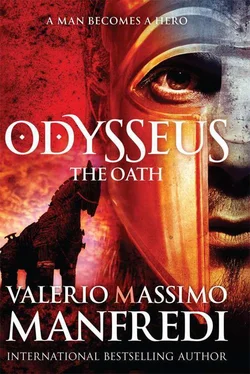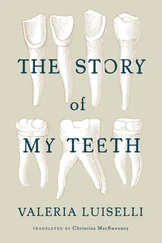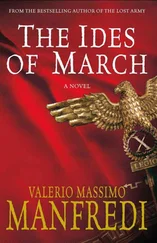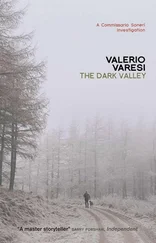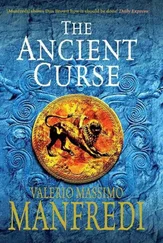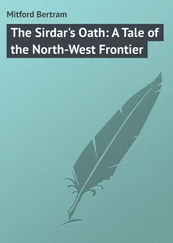Valerio Mafredi - The Oath
Здесь есть возможность читать онлайн «Valerio Mafredi - The Oath» весь текст электронной книги совершенно бесплатно (целиком полную версию без сокращений). В некоторых случаях можно слушать аудио, скачать через торрент в формате fb2 и присутствует краткое содержание. Год выпуска: 2013, ISBN: 2013, Издательство: Macmillan, Жанр: Исторические приключения, на английском языке. Описание произведения, (предисловие) а так же отзывы посетителей доступны на портале библиотеки ЛибКат.
- Название:The Oath
- Автор:
- Издательство:Macmillan
- Жанр:
- Год:2013
- ISBN:9780230769335
- Рейтинг книги:3 / 5. Голосов: 1
-
Избранное:Добавить в избранное
- Отзывы:
-
Ваша оценка:
- 60
- 1
- 2
- 3
- 4
- 5
The Oath: краткое содержание, описание и аннотация
Предлагаем к чтению аннотацию, описание, краткое содержание или предисловие (зависит от того, что написал сам автор книги «The Oath»). Если вы не нашли необходимую информацию о книге — напишите в комментариях, мы постараемся отыскать её.
The Oath — читать онлайн бесплатно полную книгу (весь текст) целиком
Ниже представлен текст книги, разбитый по страницам. Система сохранения места последней прочитанной страницы, позволяет с удобством читать онлайн бесплатно книгу «The Oath», без необходимости каждый раз заново искать на чём Вы остановились. Поставьте закладку, и сможете в любой момент перейти на страницу, на которой закончили чтение.
Интервал:
Закладка:
In the end, I was declared the winner and everyone applauded. Bar one. Ajax left the assembly in a rage and soon disappeared from sight. The armour was taken back to my tent.
I couldn’t fall asleep that night, not even for brief moments. But even if I had been sleeping, I would have been shocked awake by Ajax’s shouting. ‘Come out, you traitor! Come and see the fate that will befall those who have denied me my rights! I’ll kill them all, here, right here in front of your tent and you last ofall!’
In my drowsy confusion, I couldn’t understand at first what was happening, what Ajax was doing. I ran out, unarmed, and saw something I never could have imagined: Ajax had dashed to the ground the men who were guarding the cattle and sheep that served as our foodstock; they showed no signs of life. And there he was, as blood-spattered as a butcher, massacring the animals one after another, a torch held high in his other hand to illuminate his deed. The crazed animals were crowding together, bleating and lowing in terror, powerless to escape their fate. The stench was unbearable as we were immersed in a fog of madness and nightmare. Eurylochus ran up next to me, panting: ‘He thinks they’re the men who voted against him. He’s lost his mind! I’m going to sound the alarm.’
‘No,’ I replied. ‘Don’t do anything. He’s only killing animals.’ The pen was only about fifty feet from my tent, and my tent was at the centre of the naval camp, equidistant from the Myrmidons on one end and Ajax’s men on the other. Although I had stopped Eurylochus, in no time a speechless crowd of hundreds and then thousands of men were thronging to catch sight of that wretched spectacle: princes and kings, warriors, servants, slaves and concubines. I saw Ajax’s slave and lover, Tecmessa, among them; she was sobbing. Everyone understood what was happening because the news had flown through the camp and many stood there numbly, tears flowing down their faces. Others had lit torches to get a better look. Last to arrive was Teucer, who looked at his brother dumbfounded, as if he could not believe his eyes.
In the end, Ajax, hoarse from all his yelling, panting, exhausted and covered with blood from head to foot, slipped and lay there among the bowels, blood and excrement of sheep and cows.
None of us moved. No one took a step or tried to approach him. Even Agamemnon, Menelaus and Diomedes watched wordlessly. Nestor and Idomeneus looked at one another and then at me, searching for an answer that no one was capable of giving. No one in all those years of war had ever seen such a thing, no one could bear to see the giant of one hundred battles weltering in the middle of that abomination. The red, flickering torchlight could only give us shredded glimpses of reality, all tinged with the saturated tones of violence. But when the cold, colourless light of the hour preceding the morning rendered the shapes and shades equal and inert, our anguish mounted until it became unbearable. I wanted to scream, to tear out my hair, to claw at my cheeks like the mourning women who follow funeral processions in countryside villages. Instead, I stood there motionless like a statue of salt.
Then came the moment of extreme horror. Ajax awakened, struggled to his feet, looked around at the friends and comrades of so many battles and then at himself. As the moments passed, his mind started to eke a bit of light from that pale sky and that still, grey sea, and he came to his senses. Disgust slowly twisted his face as shame filled his eyes with burning tears and seeped into that great heart of his. Ajax gave a scream like the cry of one hundred men, a howl of horror and utter despair. He still gripped the sword that Hector had given him after their long duel and, stumbling over the mangled carcasses, he made his way straight towards me.
I did not move. I deserved to be killed by him. He stopped a step away from me and, without saying a word, he stared into my eyes and raised his sword. . I knew my time had come. Mine would be the death of a contemptible man.
Instead my punishment was a hundred times more bitter. Ajax turned the sword at the last moment towards himself and he stuck it right under his diaphragm. Since deathly exhaustion had deprived him of the energy necessary to thrust it into his heart, he calmly placed the hilt end upright on the earth and threw himself on the point with all the weight of his huge body. Hector’s blade cleaved his great heart in two and came out of his back. The giant collapsed. And the earth trembled under our feet.
32
The two men guarding the pen who had been struck down by Ajax did not survive the attack. This made Ajax’s act even more repugnant in the eyes of those who had stood there watching and judging, without bothering to ask themselves why he had done such a thing. Agamemnon wanted him buried like carrion, but I fought to have him given the honours of a pyre: a hero’s funeral. My standing up for him reflected no particular merit on my part, but it did help to assuage my remorse.
‘He took his own life with his sword. What more could he do to redeem his shame? He had always fought, all these long years, like a lion. Isn’t that enough to earn him flames instead of worms?’
‘He thought he was killing us as he was slaughtering those poor animals.’
‘Well, he must have had a good reason, don’t you think? It was clear that he’d lost his mind. If he hadn’t gone mad he wouldn’t have been killing sheep, goats and cows, he would have been killing us, the kings of the Achaians, the comrades of a thousand battles. Because we betrayed him. But then a god made him come to his senses in time for him to experience unbearable shame and the worst pain of his whole life. Now he’s dead and we’ve lost our greatest combatant, one of the last of his kind.’
I had my way. And thus we celebrated funeral rites for Ajax, son of Telamon, prince of Salamis, as we had celebrated those of Patroclus and Achilles. Only then did we realize how much we had loved him. We each recollected a certain moment spent together, each one of us added something of our own onto the pyre. It was I who ritually bent Ajax’s sword, the cruel blade that had belonged to his enemy. He succeeded where his enemy had not, in driving it into his heart.
We chose a spot on the Rhoetean promontory to bury his ashes, then raised a high tumulus there so he would be forever remembered.
We had never felt so alone as we did after his death, we had never felt so sad. But we knew we had to react and regain control of the situation. Our army had to believe that we were still certain of victory. Ajax had descended from Zeus himself, and we needed to replace him with another warrior of his same stock. A fighter as strong and passionate as he had been.
‘The son of Achilles!’
‘But he’s only a boy,’ said Agamemnon.
‘He’s seventeen years old,’ I replied. ‘He’s perfect. He has no children, no wife and no homeland. He grew up on an island far away from the land of his ancestors, whom he has never seen. He never met his grandfather Peleus; he only saw his father once when he was too young to remember. All he knows about Achilles is what he has heard, and his only goal is to surpass him in fame. He has been raised for one single thing: combat. He has no loved ones, no roots, no feeling or memories to share with another. He’s an animal of war.’
‘How do you know all these things?’
‘When we left Aulis to cross the sea, Achilles and I stopped at Scyros to take on food and water, but mostly because he wanted to see his son. It was I who gave King Lycomedes instructions on how he was to be educated. We put him in the charge of two of Achilles’ own Lapiths to be trained in the art of war. I suppose I foresaw that this day might come.’
Читать дальшеИнтервал:
Закладка:
Похожие книги на «The Oath»
Представляем Вашему вниманию похожие книги на «The Oath» списком для выбора. Мы отобрали схожую по названию и смыслу литературу в надежде предоставить читателям больше вариантов отыскать новые, интересные, ещё непрочитанные произведения.
Обсуждение, отзывы о книге «The Oath» и просто собственные мнения читателей. Оставьте ваши комментарии, напишите, что Вы думаете о произведении, его смысле или главных героях. Укажите что конкретно понравилось, а что нет, и почему Вы так считаете.
